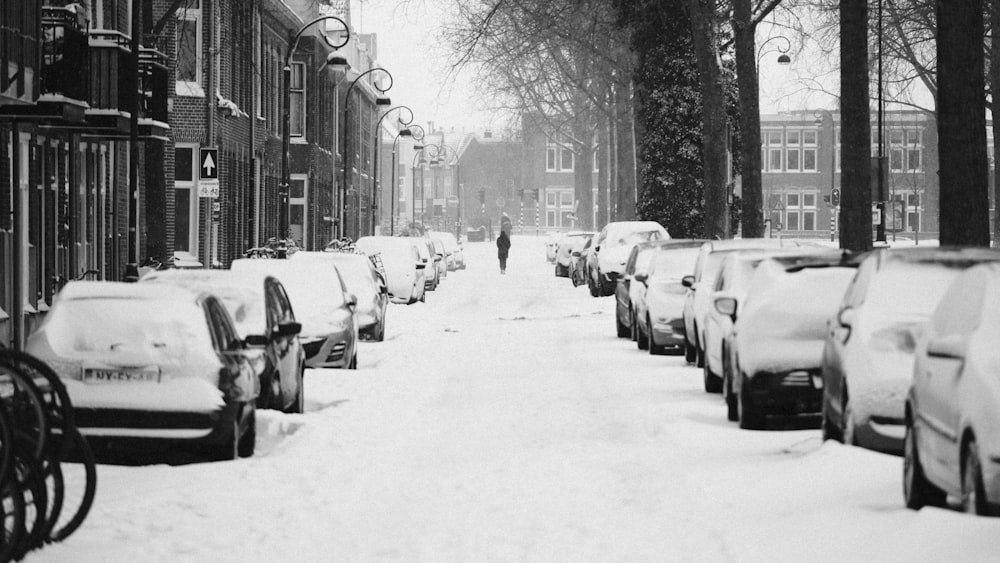As the first days of winter in Missoula, Montana arrived with icy-cold temperatures and snow-filled streets and sidewalks, many people have been left feeling down and unmotivated. It’s a feeling that our counselors keep hearing about because many find hard to shake off. For some, this may indicate a case of SAD, or Seasonal Affective Disorder. I’m pretty sure I suffered this during many of my first winters in Missoula after moving here from the much sunnier city of Helena, Montana.
How is it possible to find joy in such dreary conditions?
To answer this question, we can look to the history of the psychology of happiness and examine the work of modern researchers and philosophers. The concept of happiness has been studied and discussed by thinkers throughout history. Ancient Greek philosophers such as Aristotle and Epicurus wrote extensively about the pursuit of happiness and the attainment of contentment. Aristotle, for example, defined happiness as “living according to virtue.” Epicurus, on the other hand, suggested that it was important to “avoid bodily pain and mental disturbance,” in order to achieve happiness.
Despite living over 2000 years ago, the ideas of these great thinkers still offer wisdom to us today.
In more recent times, the field of psychology has studied the concept of happiness in greater detail. The science of positive psychology, for example, has focused on the study of, “positive emotions, positive character traits, and enabling institutions.” The goal of positive psychology is to help individuals and communities to, “lead meaningful and fulfilling lives.”
The psychology of happiness, or “positive psychology,” began to pick up steam in the late 20th century. Pioneered by American psychologists such as Abraham Maslow and Carl Rogers, and later championed by Martin Seligman, positive psychology seeks to understand the conditions under which people become and remain happy. As Maslow famously said, “If you plan on being anything less than you are capable of being, you will probably be unhappy all the days of your life.”
Happiness Studies
Since then, numerous studies have been conducted on the subject of happiness in the United States. A 2019 study by the American Psychological Association surveyed 1,500 adults and found that, of those surveyed, 70 percent reported feeling joy and contentment, while nearly 50 percent reported feeling happy most of the time.
The research on happiness in the United States has also revealed interesting patterns in happiness across different demographics. A study conducted by the American Psychological Association in 2017 found that women were more likely to report higher levels of happiness than men. This study also found that older Americans reported higher levels of happiness than younger Americans.
Researchers have also revealed interesting patterns across different regions. A study conducted by the University of Vermont in 2018 found that residents of the western states of Montana, Wyoming, and Washington were more likely to report higher levels of happiness than residents of other regions. This is likely due to the fact that these states have lower crime rates, better access to health care for those who can afford it, and more beautiful natural landscapes with abundant opportunities for outdoor recreation.
It might also be due to the low populations and the general sense of freedom that many people in these states feel. Feminist philosophers have argued that in order to truly achieve happiness, we must look beyond the individual, and take into account the structural context in which we live. One of feminist thought’s great insights has been that we can only be happy if we live in a society in which all people have as much practical freedom as others.
The research on happiness in the United States has also revealed interesting patterns across different socio-economic groups. A study conducted by the University of Michigan in 2017 found that individuals with higher levels of education and income were more likely to report higher levels of happiness than those with lower levels of education and income. It is clear that the pursuit of happiness is a complex and ever-evolving subject.
Accept Ebbs and Flows in Happiness
As Eleanor Roosevelt once said, “Happiness is not a goal; it is a by-product,” Indeed, it is not enough to simply be content or optimistic—true happiness comes from understanding and cultivating our own sense of joy and contentment as we go about our lives. This is particularly true in Missoula, Montana, where the winter months can be cold and dreary.
Exercise is a great way to boost endorphins and manage stress, while engaging in activities such as reading, writing, or art can help to stave off feelings of boredom and loneliness. Recent studies have also shown that decorating for the various holidays of fall and winter is a great way to maintain joy even as we might feel more and more cooped up in our homes.
Additionally, spending quality time with family and friends can help to lift our spirits and remind us of the people who love and care for us. As we do this, it is wise to avoid the lures of our consumerist society and keep things simple. Finally, we can remember that humans have evolved to slow down and huddle through the winter months. There’s nothing wrong with taking this time to turn inward and ease up on the busyness of life for a few months.
No matter what the weather outside is like, happiness is possible. As the old saying goes, “Happiness is an inside job.” It may take some effort and dedication, but it’s worth it in the end. With the right approach, anyone can find joy and contentment, even on the greyest of days in Missoula, Montana.
 Justin Whitaker, Ph.D., holds a doctorate in Buddhist ethics from the University of London. He has given lectures, and taught Buddhist studies and Philosophy at Oxford University, the University of Hong Kong, the University of Montana, and at Antioch University’s intensive study-abroad program in India. A certified meditation teacher, he is a regular contributor to Patheos.com, and Senior Correspondent for Buddhistdoor Global. Justin is the official blog writer for Sunflower Counseling MT in Missoula, Butte, Kalispell, Billings, and surrounding areas. He lives in Missoula with his family.
Justin Whitaker, Ph.D., holds a doctorate in Buddhist ethics from the University of London. He has given lectures, and taught Buddhist studies and Philosophy at Oxford University, the University of Hong Kong, the University of Montana, and at Antioch University’s intensive study-abroad program in India. A certified meditation teacher, he is a regular contributor to Patheos.com, and Senior Correspondent for Buddhistdoor Global. Justin is the official blog writer for Sunflower Counseling MT in Missoula, Butte, Kalispell, Billings, and surrounding areas. He lives in Missoula with his family.



